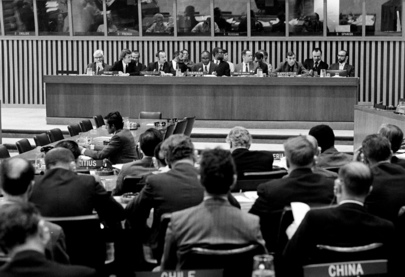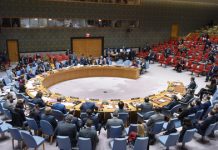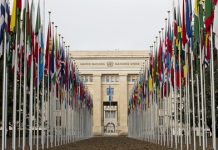“Israeli authorities continue to restrict the delivery of fuel into and throughout the Gaza Strip, effectively choking off life-saving services for deprived and starving people,” UN Spokesperson Stéphane Dujarric said during his regular press briefing in New York.
Conditions in the enclave remain bleak, as Israeli operations continue to have a devastating impact on civilians, with reports of the killing and injury of scores of people, many of whom were just seeking aid.
Pregnant women and babies at risk
Due to the fuel situation, the UN Population Fund (UNFPA) warned that 80 per cent of critical care units, including those used for childbirth, risk shutting down – at a time when 130 women are giving birth every day.
“As UNFPA stressed, fuel for Gaza is a matter of life and death,” said Mr. Dujarric.
He added that community kitchens were able to prepare more than 200,000 meals every day this week.
However, this represents an 80 per cent reduction compared with the more than one million meals distributed daily at the end of April, calling it “basically a trickle offered to people on the brink of famine.”
In the absence of fuel, cooking gas and electricity, people have resorted to burning plastic waste.
“When they do so in makeshift tents, you can imagine what happens with the poor ventilation and the tremendous risks that that poses,” he told journalists.
A young boy in Gaza with severe weight loss and malnutrition eats a nutritional supplement.
Allow in more aid
Furthermore, the UN relief coordination office, OCHA, also reminds that to meaningfully address the massive deprivation in Gaza, the Israeli authorities must allow in higher volumes of supplies and more varied types of food, as well as cooking gas, fuel and shelter items.
Mr. Dujarric stressed that to facilitate the orderly distribution of aid, supplies must be channelled daily through multiple crossings and land routes simultaneously. This would ensure people that the flow of essential support is steady, sufficient and reliable.
He said the UN and partners attempted to coordinate 15 humanitarian movements inside Gaza on Tuesday but only three were fully facilitated by the Israeli authorities, while seven were denied outright.
Four missions were initially approved but then halted on the ground, although one was ultimately accomplished on Wednesday and another was cancelled by the organizers.
Source of original article: United Nations (news.un.org). Photo credit: UN. The content of this article does not necessarily reflect the views or opinion of Global Diaspora News (www.globaldiasporanews.net).
To submit your press release: (https://www.globaldiasporanews.com/pr).
To advertise on Global Diaspora News: (www.globaldiasporanews.com/ads).
Sign up to Global Diaspora News newsletter (https://www.globaldiasporanews.com/newsletter/) to start receiving updates and opportunities directly in your email inbox for free.






























